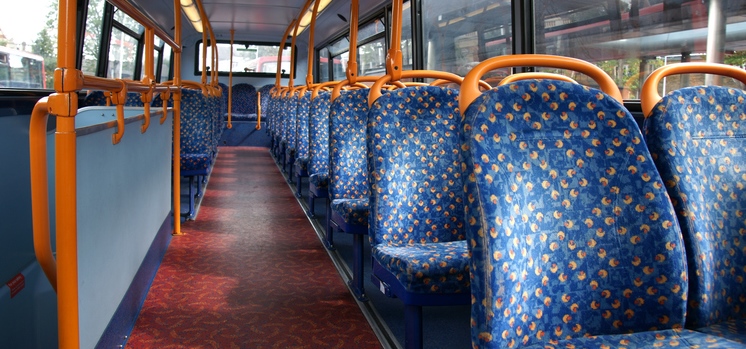Left behind
Struggling families in the North are being locked out of job opportunities because of unreliable and unaffordable public transport, new research has shown.
The study, commissioned by the Joseph Rowntree Foundation (JFR), surveyed unemployed residents in low-income neighbourhoods in Manchester and Leeds city regions and found that people consistently highlighted the issue of transport as a main barrier in finding employment.
The high cost of buying and running a car means that the majority of low-income families are totally reliant on public transport. Buses are the primary and preferred mode of transport, being cheaper than trains. But buses’ consistent unreliability has made arriving at a job on time all but impossible.
‘Inadequate’
One of the people interviewed, a woman from Harpurhey, Manchester, told researchers how she had to turn down a job because it was simply too difficult to get to via bus.
“I’d been offered a job and it was on the other side of Manchester, and I did the bus journey to see how long it would take and it was too inadequate,” she said. “It was on the opposite side of Manchester like an hour and a half, two hours on a bus and it wasn’t just one bus, it was two or three.”
Many of the out-of-work residents in the neighbourhoods researchers looked at had been previously employed in low-paid, insecure jobs with changing shift patterns, and they had continued looking for similar types of jobs, which were often in manufacturing or warehousing. These jobs were frequently located in the peripheries of cities with very limited access to public transport.
“I was talking to my [JobCentre] advisor, and there’s a place called Sherburn-in-Elmet and they have tons of work, big industrial estate, but there’s no bus service, it’s about 13 miles away,” an interviewee from Leeds said. “I do not understand why they build a big estate where there’s no transport. If you haven’t got a car, you can’t have a job.”
Researchers also found that JobCentres weren’t supporting claimants as they sought work with feasible transport options.
“They do not offer any advice or support with transport issues,” said one man from West Yorkshire. “Every now and again, an advisor will look up the nearest bus route for you, but don’t look at the practicalities of it.”
Local authority cuts
The unreliability of buses will only worsen as they become increasingly infrequent amid continued local government funding cuts.
Nearly half of all bus services in England receive full or partial subsidies from local authorities. But figures published earlier this month showed that local authorities have halved funding for buses since 2010, cutting about ÂŁ182m over the years, which has affected more than 3,000 bus routes.
In the last year alone, local authorities slashed £20m from their budgets to subsidise bus routes, and 188 bus services were cut. Some local authorities have cut funding for buses altogether – a Campaign for Better Transport FoI request found that in Oxfordshire, the total set aside for bus subsidies in both the 2017-18 and 2018-19 fiscal years was zero, compared with more than £800,000 in 2016-17.
Commenting on the JRF report on northern families being left behind by poor transport, JRF’s acting head of policy and research Brian Robson said, “Currently unaffordable and unreliable public transport is holding people back from being able to achieve a better standard of living. With more powers being devolved to city and local leaders, now is the time to redesign our transport, housing and economic policies so that everyone can get into work and progress in their careers.”
Unite national officer for public transport Bobby Morton pointed out that the Bus Services Act, which was given Royal Assent in April last year, gives greater powers to Mayoral authorities such as Manchester to improve the reliability, accessibility and affordability of bus services.
“They have the powers to do so through for example franchising or partnerships, but so far there has been little activity around this,” he said. “What’s more, local authorities are now banned from setting up their own municipal bus services under the Bus Services Act. Add this to the fact that local authority funding continues to be slashed to the bone, and the conditions described in the Joseph Rowntree report will only continue to worsen.
“The best bus services are publicly-owned ones and Unite continues to campaign for transport that is in the interests of everyone, including those most often left behind – the elderly, rural residents, the disabled, and those struggling on low-incomes, among others.”
 Like
Like Follow
Follow

